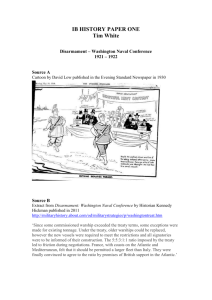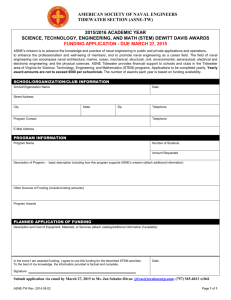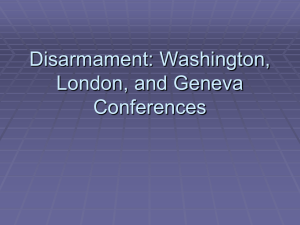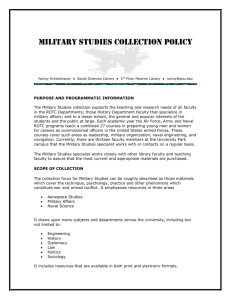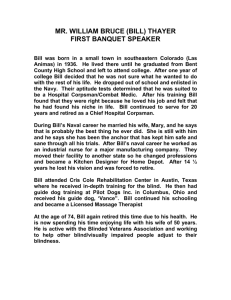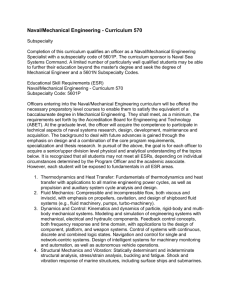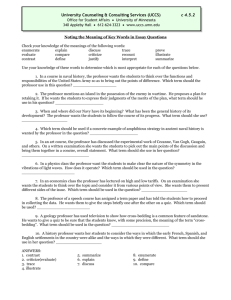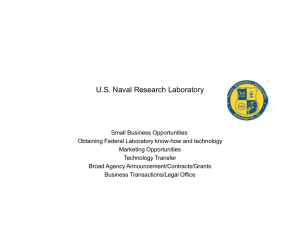Tim White - markscheme
advertisement
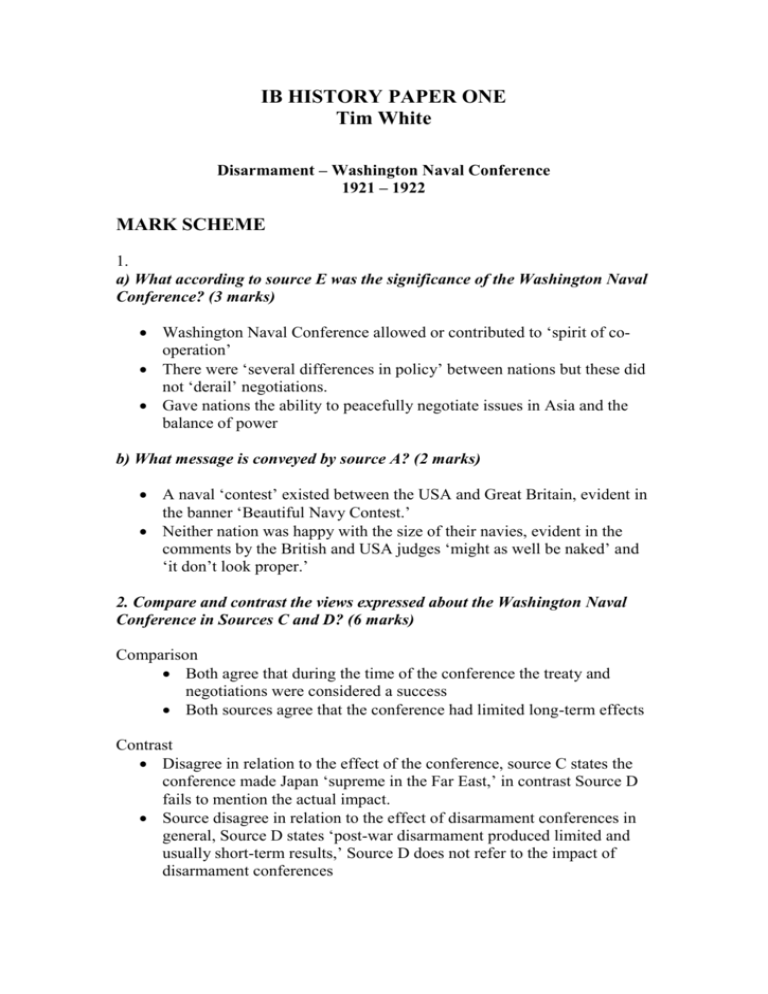
IB HISTORY PAPER ONE Tim White Disarmament – Washington Naval Conference 1921 – 1922 MARK SCHEME 1. a) What according to source E was the significance of the Washington Naval Conference? (3 marks) Washington Naval Conference allowed or contributed to ‘spirit of cooperation’ There were ‘several differences in policy’ between nations but these did not ‘derail’ negotiations. Gave nations the ability to peacefully negotiate issues in Asia and the balance of power b) What message is conveyed by source A? (2 marks) A naval ‘contest’ existed between the USA and Great Britain, evident in the banner ‘Beautiful Navy Contest.’ Neither nation was happy with the size of their navies, evident in the comments by the British and USA judges ‘might as well be naked’ and ‘it don’t look proper.’ 2. Compare and contrast the views expressed about the Washington Naval Conference in Sources C and D? (6 marks) Comparison Both agree that during the time of the conference the treaty and negotiations were considered a success Both sources agree that the conference had limited long-term effects Contrast Disagree in relation to the effect of the conference, source C states the conference made Japan ‘supreme in the Far East,’ in contrast Source D fails to mention the actual impact. Source disagree in relation to the effect of disarmament conferences in general, Source D states ‘post-war disarmament produced limited and usually short-term results,’ Source D does not refer to the impact of disarmament conferences 3. With reference to their origins and purpose, assess the value and limitations of sources B and E for historians studying the Washington Naval Conference? (6 marks) Source B Origin - extract from Disarmament: Washington Naval Conference by Historian Kennedy Hickman published in 2011 Purpose - state the terms of the Washington Naval Treaty and the effect it had on international relations Value - it is a secondary source and therefore a level of hindsight that allows more accurate evaluation of the events. - written by a historian and thus has a level of credibility unfound in other uncertified historical documents - addresses both the terms of the treaty as well as the effects of the treaty, this provides a more complete view of the Washington Naval Conference. Limitations - it is a secondary source and so fails to provide an insight into society’s views and opinions of the time. Source E Origin - an extract from The Con-current Conferences: the Washington Naval Conference and the Far Eastern Affairs Conference of 1922 by Historian Edward Chusid Purpose - address the atmosphere of the Washington Naval Conference as well as the goals of each nation involved. Value - it is a secondary source and so provides a level of hindsight to the discussion of the conference that is uncommon in primary sources - written by a Historian and therefore is more reliable than other uncertified works Limitation - fails to provide any facts with the piece predominantly based on opinion and potentially subjective - secondary source and therefore does not provide the reader with information in relation to view and opinions of the time 4. Using the sources and your own knowledge, determine whether the Washington Naval Conference made significant and long-lasting improvements to international relations between the period of 1922 – 1936. Source Material that could be used: Source A: Suggests that the Washington Naval Treaty did not succeed in improving international relations with naval tension still existing between nations even seven years after the Treaty was created. Source B: Indicates that limitations of the Treaty worsened relations with France not completely satisfied with the Treaty and the size of her navy. This worsened French relations with other members of the conference as well as Italy who it was resentful of for having an equally large navy. Source C: Historians such as Norman Low also support the view that the Washington Naval Conference improved relations with him stating ‘the agreements were regarded as great success and relations between the powers improved.’ This statement clearly expresses the positive effects of the treaty on international relations.Source C also refers to the fact that ‘Japan was left supreme in the Far-East’ and the navies of ‘Great Britain and the USA were spread more widely.’ This suggests that the Treaty didn’t improve international relations but rather led to a shift in power from the UK and the USA to expansionist nations such as Japan Source D: states that the ‘(Washington Naval Conferences’) successes were limited and not permanent.’ Source E: ‘the conferences were dominated by a spirit of ‘co-operation between the attending great powers.’ This suggests that the Conference contributed to improved international relations. Own Knowledge that could be used: Aggressors such as Japan violated the Treaty within ten years of it being formed. This suggests that in the long-term the Washington Naval Conference failed to improve international relations. The Washington Naval Conference deliberately excluded both Germany and Russia from the disarmament talks. This isolated both nations and worsened relations between them and other European nations. One may argue that the Conference and subsequent treaty was formed for the purpose of appeasing aggressors such as Japan rather than causing a long-term improvement in international relations.
